FRUMSPEAK
FRUMSPEAK
The First Dictionary of Yeshivish
Chaim M. Weiser

A JASON ARONSON BOOK
ROWMAN & LITTLEFIELD PUBLISHERS, INC.
Lanham Boulder New York Toronto Oxford
A JASON ARONSON BOOK
ROWMAN & LITTLEFIELD PUBLISHERS, INC.
Published in the United States of America
by Rowman & Littlefield Publishers, Inc.
A wholly owned subsidiary of The Rowman & Littlefield Publishing Group, Inc.
4501 Forbes Boulevard, Suite 200, Lanham, Maryland 20706
www.rowmanlittlefield.com
PO Box 317
Oxford
OX2 9RU, UK
Copyright 1995 by Jonathan Weiser
First Rowman & Littlefield edition 2004
All rights reserved. No part of this publication may be reproduced, stored in a retrieval system, or transmitted in any form or by any means, electronic, mechanical, photocopying, recording, or otherwise, without the prior permission of the publisher.
British Library Cataloguing in Publication Information Available
Library of Congress Cataloging-in-Publication Data
Weiser, Chaim M.
Frumspeak : the first dictionary of Yeshivish / by Chaim M. Weiser.
p. cm.
ISBN 1-56821-614-9 (alk. paper) ISBN 978-1-56821-614-0
1. English languageForeign words and phrasesYiddishDictionaries. 2. English languageForeign words and phrasesHebrewDictionaries. 3. English languageForeign words and phrasesAramaicDictionaries. 4. Yiddish languageInfluence on English. 5. Hebrew languageInfluence on English. 6. Aramaic languageInfluence on English. 7. Rabbinical seminariesUnited StatesSlang. I. Title.
PE1582.Y5W45 1995
437'.947'03dc20
95-17249
CIP
Printed in the United States of America
 The paper used in this publication meets the minimum requirements of American National Standard for Information SciencesPermanence of Paper for Printed Library Materials, ANSI/NISO Z39.48-1992.
The paper used in this publication meets the minimum requirements of American National Standard for Information SciencesPermanence of Paper for Printed Library Materials, ANSI/NISO Z39.48-1992.

In recognition of the 
pervading every endeavor,
I dedicate this book to
my wife,
Tamar,
 ,
,
who gives meaning to whatever I undertake.
Acknowledgments
This book has resulted from the contributions of many people, each of whom deserves individual recognition. I hope that, with this insufficient recognition, I am yoitzeh my chiyuv to be makir toiv:
Y. Amsel, Y. Appelbaum, A. Apt, N. Baum, E. Bekkerman, M. Berkowitz, C. Bernath, S. Boehm, N. Bohensky, Y. Braun, D. Brecher, Y. Brisman, Y. Broyde, M. Bulka, M. Cherrick, M. Cohen, A. Danziger, B. Dicker, Y. Diena, A. Dorfman, C. Drebin, A. Dreyfuss, D. Drucker, G. Eichorn, S. Eisen, A. Eisenstein, A. Elias, Y. Epstein, Y. Farkas, Y. Feiler, N. Geretz, Y. Goldberg, M. Goldschmidt, E. Goldstein, Y. Goldstein, M. Gornish, S. Gray, D. Gross, M Gross, M. Grossman, A. Hackerman, Y. Isenberg, Y. Iskowitz, Y. Hess, A. Jakubowicz, C. Kaplan, Y. Katz, D. Keller, M. Kitay, A. Klein, Y. Kohn, A. Kupfer, M. Kupfer, D. Lando, A. Leiser, C. Levine, A. Liss, S. Loketch, A. Lowenthal, D. Mermelstein, Y. Moldaver, N. Moskovics, M. Nadel, Y. Nosenchuk, M Pam, S. Pashkin, S. Perlman, Y. Pitter, C. Plotnik, Y. Reinman, N. Rokeach, T. Rokowsky, E. Rosenblatt, C. Rubin, A. Schmidt, E. Semah, N. Simcha, S. Singer, Y. Singerman, M. Sinsky, Y. Slatus, Y. Sperka, C. Stefansky, M. Stern, S. Stern, G. Tauber, Y. Tischler, S. Tsirulnikov, Y. Twerski, T. Tyner, B. Wallen, Y. Weinberg, Y. Weinberger, B. Yankelove, Y. Zyskind.
And very special thanks to my good friend Baruch Liefsky for his patience and assistance. Thanks to Rabbi H. M. Levine for his contributions.
The Language of Sanctity:
The Phenomenon of a Jewish Language
The Midrash ascribes these four practices to the Jews' distinction in Egypt. That the Jews refrained from both promiscuity and gossip and that they maintained their distinctive names and language meant that they would have been immediately ready for their redemption had they not simultaneously engaged in idolatrous practices (Heb. avoda zara).
It is curious that the Midrash considers all four of these characteristic practices to be mitzvos. The Torah certainly dictates human activity surrounding promiscuity and gossip. There are, however, ostensibly no specific regulations regarding the use of traditional personal names or of a particular language. Surely, one result of generations of loyalty to tradition has been that Jews, even today, continue to use biblical names for their children. Nonetheless, this practice has undergone a number of changes over time. Names such as Chaim, Ze'ev, and Bruria have joined the ranks of names of biblical origin. Similarly, many names such as Feiga, Reizel, and Leibel have been translated into Yiddish and are used equally with their original Hebrew forms. If there were some imperative for Jews to use only those names found in the Torah, some mention of this mitzva would be expected.
Jews have always educated their children in the holy language of Hashem's communication with His people. Hebrew has, throughout that time, been the language of Jewish correspondence and authorship. However, history indicates that Jews have spoken almost all of the world's languages with greater profciency than that with which they have commanded the language of Scripture. Jews of Spanish origin distinguished themselves from their neighbors with their language just as the Jews of Egypt had done centuries earlier. Parallel to Sefardi Ladino, Ashkenazi Jews clothed their thoughts, dreams, and disappointments in the vestments afforded by their rich Yiddish language. Rashi and others often employed gentile languages to render a Hebrew text more understandable to readers. In no instance is there evidence of the widespread use of Hebrew as a vernacular language in the great communities of the long Jewish Diaspora. Again, it is a cause for wonder that Jews seem historically to have neglected what the Midrash counts among the meritorious practices of the Jews of Egypt.
The same Midrash cites three biblical verses intimates that knowledge of this language could not have been sufficient proof of his identity and, by extrapolation, that knowledge of this language could not have been exclusive to Jews. Assuming this to be so, the question regarding the putative imperative to use this language is compounded by the realization that this language may not have been so distinctive as the commentator on the Midrash implies.
Several of the commentaries provide reasons that Lashon Kodesh is so named. however, posits that the language is intrinsically holy, and he presents as evidence Hebrew's dearth of words for the more inelegant facts of life. Lashon Kodesh, in the Rambam's system, is a pristine language of euphemism and is therefore most suitable to express the loftiest communication.
Common to both these trends is the notion that Lashon Kodesh is especially suited for description and discussion of that which is holy. The term highlights this notion grammatically. While some may translate the phrase offhand as the holy language, closer attention to its structure would result in the more accurate rendering the language of holiness. Even more to the point, the word Lashon itself may convey meanings other than language. In several talmudic expressions, the word denotes a meaning closer in translation to terminology or diction.


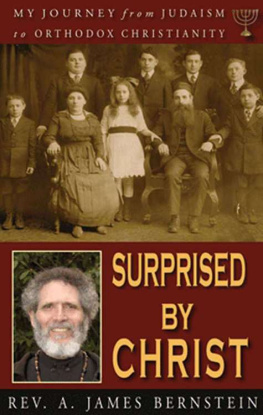
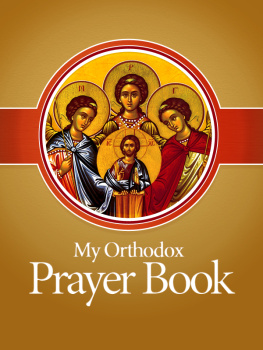
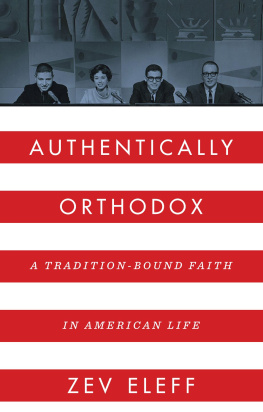


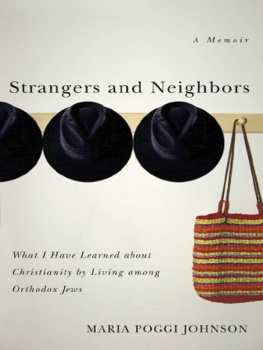
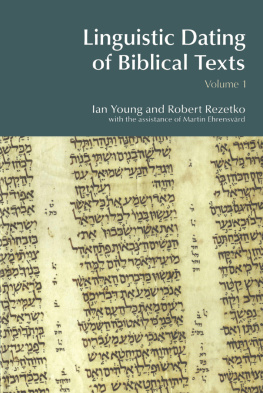
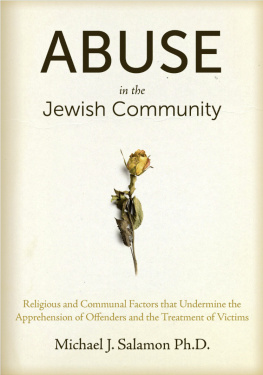


 The paper used in this publication meets the minimum requirements of American National Standard for Information SciencesPermanence of Paper for Printed Library Materials, ANSI/NISO Z39.48-1992.
The paper used in this publication meets the minimum requirements of American National Standard for Information SciencesPermanence of Paper for Printed Library Materials, ANSI/NISO Z39.48-1992.

 ,
,